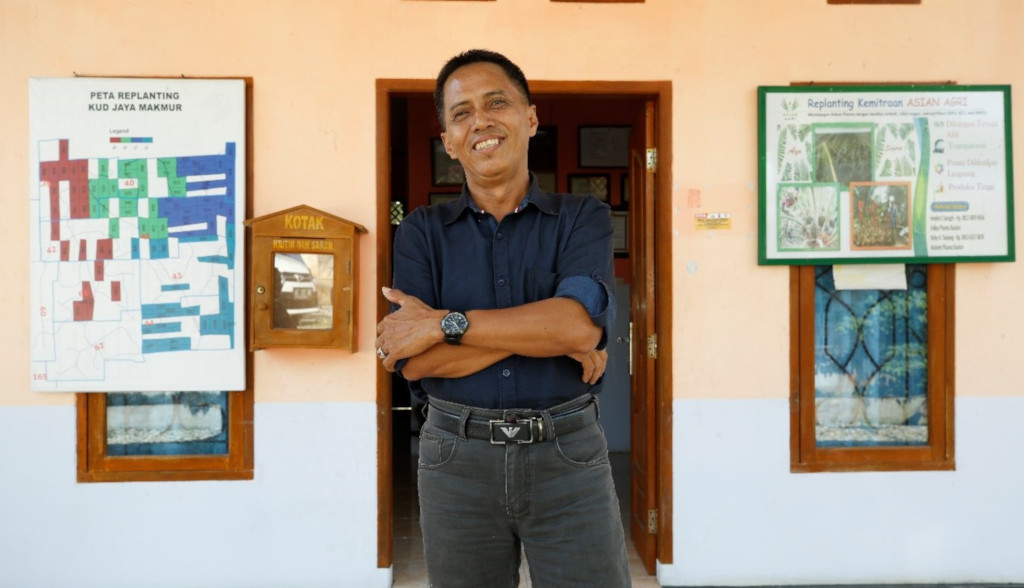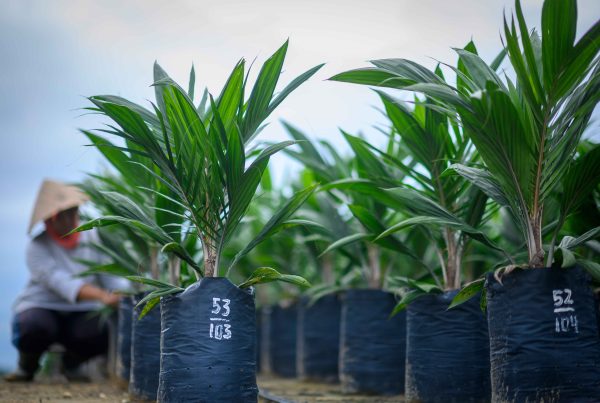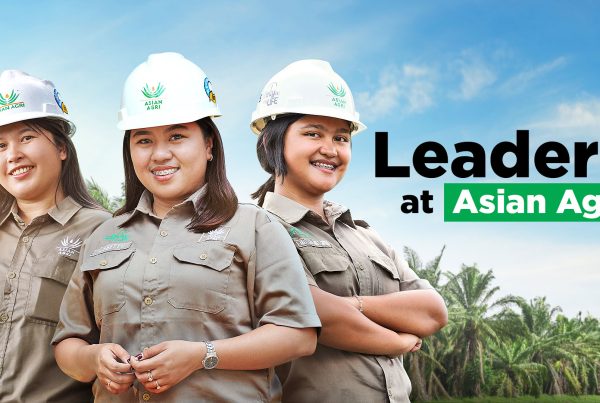When Sudiyono first moved to Riau in 1991 to start a new life as an oil palm smallholder, he had no idea how much of an impact it would have not only on his livelihood, but on his role in the community.

“At that time, I was still a newbie and didn’t know anything about taking care of palm oil plantation. I also didn’t have enough money to do much here. Until Asian Agri came in with a series of training to help me manage palm oil plantation,” Sudiyono said.
“I felt the improvement in the quality of life in 2010. Not long after, I was able to focus more on contributing to the community through the Village Unit Cooperative, or we usually call it KUD for short,” he continued.
Play a role through KUD
In 1994, the smallholders formed KUD Jaya Makmur, currently chaired by Sudiyono.
“Since then, this KUD has become the backbone of the community’s economy in this area. It plays a vital role in facilitating the community’s needs,” he explained.
It provides facilities including transportation for Fresh Fruit Bunches (FFB) from the plantation to the mill, savings and loans facilities, and a mini-market that provides daily needs for the members.
It also helps palm oil smallholders manage 920 hectares of plantations.
“One factor that strengthens this organization is trust from the members that we can help them improve their welfare. The proof is the voluntary deposits of our members, which have reached IDR4.5 billion,” Sudiyono said.
With all these facilities and services to the community, it is not surprising that KUD Jaya Makmur has won several awards, both from the private sector and government agencies. One of the most recent recognitions they just got was an A accreditation certificate from the Ministry of Cooperative and MSMEs.
“The key to the success of this cooperative is by carrying the mandate given by each of our members sincerely and honestly,” Sudiyono said.
Prepare smallholders for replanting
Apart from the various services Sudiyono provides for the community, he thinks one that requires a tremendous responsibility is to lead the oil palm smallholders to do replanting.
Replanting is one way to realize the sustainable management of palm oil plantations while increasing yields and the quality of oil palm fruits without opening new land. It is highly recommended to carry out replanting on oil palm plantations that have reached their peak age, around 25 years.
“Like it or not, our oil palm plantations will reach their maximum age. So, replanting must be done sooner or later,” Sudiyono explained.
“We prepare a savings system for our members. Considering that since 2010 the price of palm oil has continued to increase, we have initiated a saving program of IDR500,000 per month. The system is to help our members save for a replanting fund when the time comes,” he continued.
Sudiyono realizes that when it comes to replanting, oil palm smallholders need mental readiness and economic stability.
“I think that the mental strength will be there once we have a strong economy. Therefore, the first strategy is to provide a program that prepares financial support for our members. Hereafter, assisted by Asian Agri, we provide comparative studies and training on alternative businesses to help them be determined,” Sudiyono explained.
Like every form of hard work, the feeling of tiredness and the weight of responsibility that is borne will pay off along with the expected results.
“After going through a long process to convince fellow oil palm smallholders, at the end of 2022, we will conduct a second replanting phase with a total land area of 172 hectares. For me, this kind of work is a kind of personal encouragement so that I can continue to live by being useful to others,” Sudiyono concluded.



